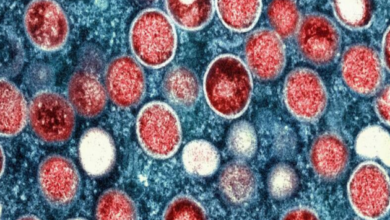Breakthrough Discovery: Specific KRAS Mutations Linked to Improved Survival Rates in Pancreatic Cancer”

In 2020, over 495,000 KRAS adults worldwide received a diagnosis of pancreatic cancer, ranking it as the 12th most prevalent cancer globally. In the United States, pancreatic cancer stands as the fourth leading cause of cancer-related deaths. The predominant type, pancreatic ductal adenocarcinoma, boasts an average 5-year survival rate of less than 10%, with traditional cancer treatments like chemotherapy showing limited efficacy.
KRAS
Researchers from The University of Texas MD Anderson Cancer Center have made a breakthrough discovery regarding certain KRAS mutations in pancreatic cancer patients, offering hope for improved survival rates. The study, published in the journal NPJ Precision Oncology, contributes to ongoing research exploring KRAS mutations as potential targets for a cancer vaccine, particularly for pancreatic and colorectal cancers.
Dr. Dan Zhao, a researcher at MD Anderson Cancer Center, highlighted the urgency for effective treatments for pancreatic ductal adenocarcinoma, emphasizing its rising incidence and limited treatment options.
Pancreatic cancer, situated behind the stomach, often goes unnoticed in its early stages due to the absence of symptoms. Its treatment depends on the cancer’s stage, with surgery as a possibility if it hasn’t spread. However, traditional cancer treatments prove ineffective in later stages, necessitating new therapeutic approaches.
KRAS mutations, found in more than 90% of pancreatic cancer patients, play a crucial role in promoting cancer cell growth and suppressing immunity. The recent study analyzed data from 803 individuals with pancreatic ductal adenocarcinoma, revealing that certain KRAS mutations correlate with better survival rates. Notably, KRAS G12R mutations showed better outcomes than other mutation types.
The study’s findings align with ongoing research targeting KRAS mutations for potential cancer vaccines. Dr. Zhao highlighted the recent development of KRAS G12C inhibitors, such as Sotorasib and Adagrasib, approved for lung cancer but not yet for pancreatic ductal adenocarcinoma.
Dr. Zhao expressed optimism about ongoing clinical trials, including one investigating Adagrasib’s safety and efficacy in pancreatic cancer. The study underscores the importance of understanding KRAS mutations and developing targeted therapies to improve outcomes for pancreatic cancer patients. Dr. Zhao emphasized the potential role of cancer vaccines, citing promising phase 1 clinical trial results for ELI-002, a vaccine for colorectal and pancreatic cancers.
Dr. Anton Bilchik, a surgical oncologist, noted the study’s significance in addressing the limited progress in pancreatic cancer survival over the past two decades. He highlighted the importance of KRAS as a potential vaccine target, acknowledging the challenge of determining the most effective subtype to target.




